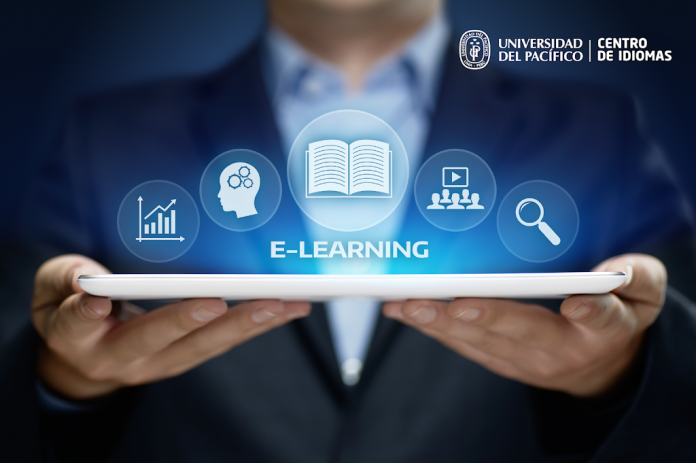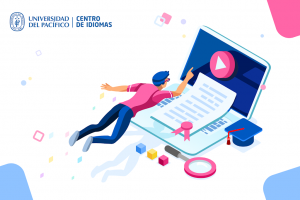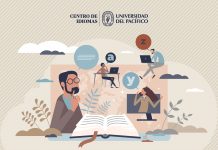When it comes to learning online, teachers and prospective students have their own expectations. However, sometimes appearances are deceiving; there is the misbelief that these kinds of courses are quite simple and they demand much less effort than face-to-face ones, either for instructors or students.
There are different kinds of online courses: synchronous and asynchronous. In the former, there is a tutor and a group of students who engage in learning at the same time. The teacher accompanies you all along the course and monitors your progress. In the latter, you learn at your own pace, free from the simultaneous occurrence of a classroom lecture. These are self-study courses that have graded activities or a multiple-choice test at the end of each module; some also have videoconferences and a weekly session to clarify doubts.
The questions listed below are important when it comes to planning an online course:
- How is it going to be structured?
- How will students interact in your online course? Is it going to have in-person components or are they going to be self-study courses?
- Will students need to attend classes at specific times?
- Will there be some sort of interaction among students?
- What will the typical weekly workload be?
- How many weeks will it last?
- What should students know before enrolling in this online course?
By keeping these aspects in mind, we will know for sure the chances of success they have and the adjustments that need to be done before launching them.
NOW IT IS YOUR TURN! WHAT ABOUT YOU?
Have you ever taken an online course?
What was it like?
Did it work as expected?
What would you change next time?
*Los mensajes y/o comentarios de publicidad u otra índole, no relacionados con el artículo, serán eliminados y reportados como SPAM*
Estimated reading time: 1 minute, 30 seconds












We invite you all to reflect on this important current issue and let us know what you think. Your contributions are more than welcome!
I´m taking an online Master's course. The first thing to consider is to make sure we have the necessary resources (band width, laptop with the latest technology). You can definitely study at your own pace but this has pros and cons because not all the students' have the same pace. In an online setting the teacher doesn't have time to answer and sometimes there is one teacher and there is another teacher who is in contact with the student. The materials are sometimes not designed for an online setting.
The course has worked for me but what I would do differently is to make it more interactive by exploiting other technologies such as video. To be able to have a real interaction, for example I can connect to the class from my home and be interacting with real students' in Lima or in another country but in real time.
As usual, you have made valuable contributions, Luis. It is true that there are technological requirements as you well pointed out. And I totally agree with you regarding the online setting: there is still a lot to be done regarding that aspect. And last, but not least important, glad to see that this post gave you the chance to reflect on your own learning and on the adjustments you would make. Regards.ZC
I had a similar situation, I definetely agree with Luis' comment. The interaction is the main problem; however I have to mention that this modality sometimes contains topics which aren't up-to-date, this is due to how fast the information can change in a globalized world today.
On the other hand, This modality only use one form, visual, setting aside the other multiple intelligences and as usual it's long, over 1 hour maybe, as a consequence, it's easy lose the concentration or distract.
I am not an expert in technology I think it's a good alternative to save time, traffic jams, stress in the street, etc, but if it is possible we must do our best to improve this modality.
You are right, Judith. You pointed out two important aspects: content quality and resources. It is true that not all students learn the same way. Videos are not the only source of information; in fact, these courses should include multimedia presentations, links from websites, pdf readings to name a few.
When I read about online courses I find little information about self-reflection or self-evaluation to see what changes should be made. I do find lots of information about marketing though, that is, how good and practical they are, recent agreements with other institutions and so on. As you well said, there is still a lot to do to improve this kind of courses. Expressing our opinions is an excellent start. Thank you for following us! ZC
This is a topic that will always cause some discussion. On one hand, we are surrounded by technology. Therefore, online courses are in great demand since they make it "easy" for people to find a suitable course for them. On the other hand, there are people who prefer face-to-face classes mainly due to interaction and proper feedback. Personally, what I missed most when I took an online course was receiving proper feedback from my teacher. I know the workload must be huge when having to read opinions and following the threads of these online interaction. However, I would have liked to receive a better response than "it's ok", "there's something missing", and other short phrases like those.
I hope if I take another online course, I'll have a much better experience.
Greetings.
Online courses have advantages, but also drawbacks. I do believe you are not alone: many students miss interaction and follow-up questions, not to mention immediate feedback. Thank you for sharing your experience! Keep following us! Regards.ZC
I think that the success of all courses depends the interest and commitment of the students.
True. These two requirements are essential when it comes to taking online courses. Regards. ZC
Comments are closed.